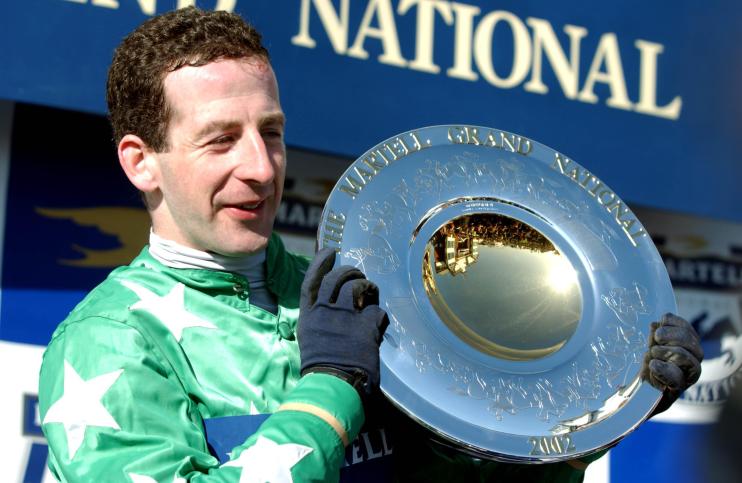Jim Culloty: Bindaree needed one chance and the rest was history

AS A jockey Jim Culloty rode some of the best around and will forever be associated with the three-time Gold Cup winner Best Mate, while later he would train the winner of the Cheltenham showpiece himself, when successful with Lord Windermere in 2014.
Culloty also won the Grand National as a rider aboard Bindaree in 2002 for trainer Nigel Twiston-Davies.
Culloty, speaking on behalf of NewBettingOffers.co.uk about his National victory, said: “I think the Grand National is the biggest race in the world. It is a handicap though, so in terms of prestige, one could argue that the Cheltenham Gold Cup and the Queen Mother Chase are above the National.”
However, the National is the one horse race that transcends the sport and he went on to talk about the time he triumphed in the world’s biggest steeplechase: “As a jockey riding a horse for the first time like I did on Bindaree in the 2002 Grand National, you just need to listen to what the trainer has to say. You’ll do your research and talk to the jockeys that have ridden the horse, but that is the case when riding in a novice hurdle on any old Monday!
“Nowadays you can go back and watch all the replays but back in my day you couldn’t do that. It’s just key to glean every bit of information you can, but sometimes you are better off finding out for yourself. My instructions from Peter Scudamore that day was that Bindaree is a front runner and if you can’t get to the front, get there as soon as you can.”
On final stages of the race, Culloty said: “To be honest, I didn’t think I’d win when What’s Up Boys was a length clear after the last. From the two out to one out, I couldn’t really kick for home because this loose horse kept crossing in front of me and with two jumps to go you have to predict what that horse has to do – but that is hard as they can do anything.
“I had to stay a safe distance away from him which meant I couldn’t really kick on, whereas Dicky [Richard] Johnson had a clear run on the outside and he kicked and, as it happens, that was too soon. It was a classic case of the elbow at the Grand National and he started to drift.
“I think what happened was that the horse heard the crowd cheering and pricked his ears to have a look and that’s the chance that Bindaree needed to get his momentum going.
“The rest was history. Having said that, it was certainly as much luck as it was judgement!”
Culloty then issued an insight into what goes through the mind of a jockey in such a long race as prestigious as the National: “You cannot rush a horse in the Grand National, you need to find your rhythm. You need to give the horse a chance to find their feet. You have to treat the first fence with caution and the first circuit itself is purely about survival.
“The fences are smaller and the drops aren’t as steep the wider you go so you want to go from the middle to the outer to start with. If you’re on a good enough jumper you can then start to move in.
“I’d definitely take the view that the first circuit is about survival.”
According to Culloty, the jockeys that do well in the National are those with good strategy, who take their time and play to the strengths of their horse, “It’s important to have a jockey on board who can just hold the horse’s head. Regardless of if I was on the favourite or a 100/1 shot, you go out and ride them with the same attitude.
“It’s only around the second circuit you think about how to go about winning the race having survived the first. You have to decide whether you’re going to go for the win, or for the best possible place in which case you wait and don’t commit before then trying to finish strong when the others tire.
“I think the longer the race goes on, the more patience the jockey needs and they need to use their heads. You see a lot of jockeys getting ahead of themselves and kicking for home. You can’t do that in these long chases on soft ground, it’s a waiting game. You need to save enough petrol in the tank to get you home.”